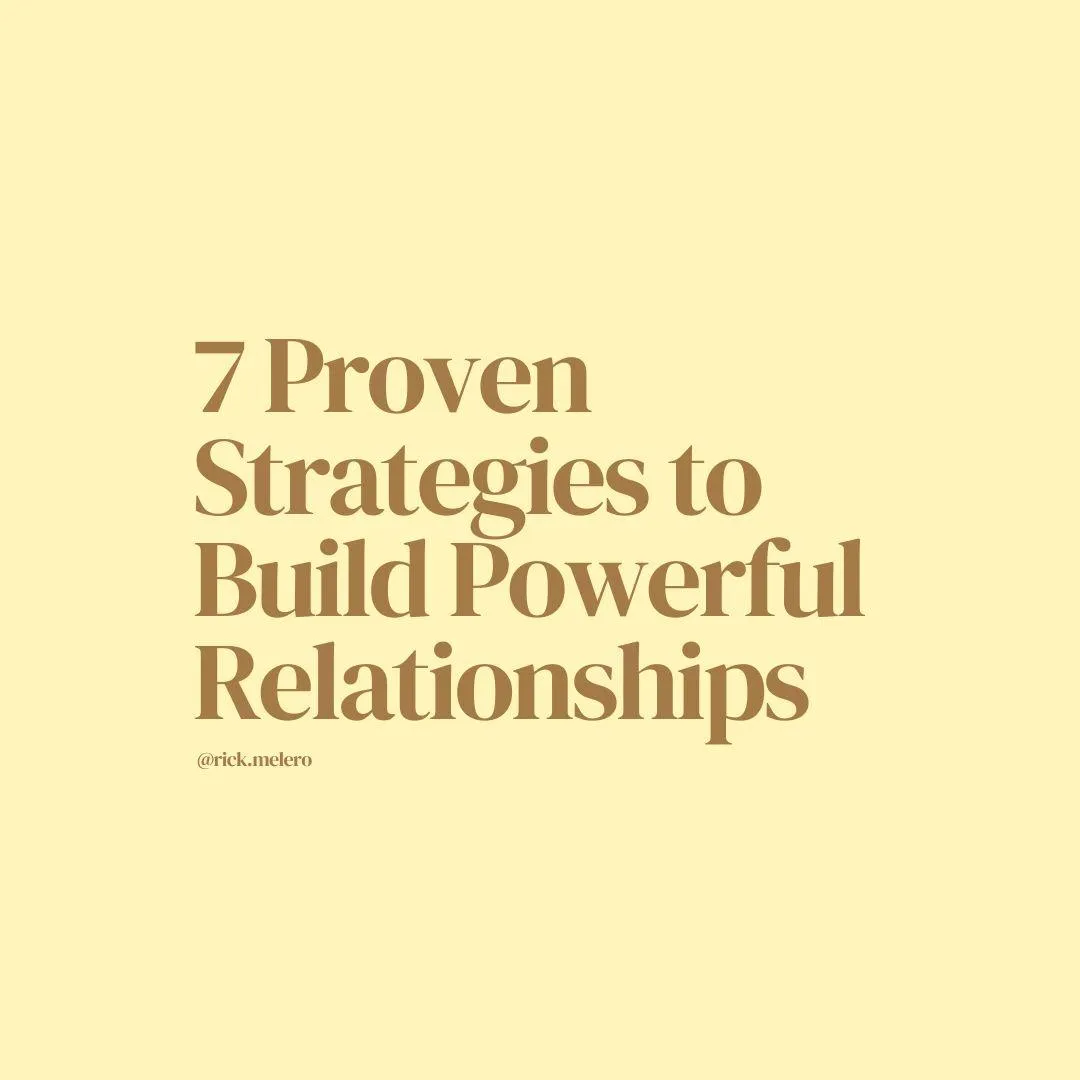
Blog Posts

Real Estate Networking Made Easy: 7 Proven Strategies to Build Powerful Relationships
Real Estate Networking Made Easy: 7 Proven Strategies to Build Powerful Relationships
In real estate, success isn’t just about finding the best properties—it’s about building the best relationships. Whether you’re a beginner or a seasoned investor, your network is your greatest asset. The right connection can open doors to deals, funding, mentorship, and partnerships you never thought possible.
But for many, networking feels intimidating or unclear. Where do you start? How do you make meaningful connections without coming off as pushy?
In this post, we’ll break down 7 proven strategies to build powerful relationships in real estate and grow your network with confidence.
The Investor Mentality: 5 Ways to Think Like the 3% Who Succeed
1. Attend Local Meetups and Events
Why It Works:
Local real estate meetups are a goldmine for connecting with experienced investors, agents, contractors, and lenders in your area. These events foster face-to-face conversations that help you stand out.
How to Do It:
Use platforms like Meetup.com or Eventbrite to find real estate gatherings near you.
Be prepared with a clear introduction:
Example: “Hi, I’m [Your Name]. I’m new to real estate and currently focused on wholesaling in [Your Market].”
Follow up with people you meet by exchanging business cards or adding them on LinkedIn.
Pro Tip:
Don’t try to meet everyone—focus on building 2–3 meaningful connections at each event.
2. Join Online Real Estate Communities
Why It Works:
Online forums and groups allow you to connect with a global network of real estate professionals and learn from their experiences.
How to Do It:
Join platforms like BiggerPockets, Facebook groups, or LinkedIn communities.
Engage by asking questions, sharing insights, and celebrating milestones.
Build credibility by providing value, such as sharing useful tools, resources, or leads.
Pro Tip:
Stay consistent in online communities—your activity builds trust and visibility over time.
3. Find a Mentor
Why It Works:
A mentor accelerates your growth by guiding you through challenges and sharing lessons they’ve learned the hard way.
How to Do It:
Approach potential mentors with respect and a clear ask:
Example: “I admire your success in [specific area]. I’d love to learn from you and assist in any way I can. Could I buy you coffee and ask for advice?”
Offer value in return, such as helping with legwork, research, or administrative tasks.
Pro Tip:
Don’t expect mentorship to be free—respect their time and expertise by showing up prepared and ready to act on their advice.
4. Leverage Social Media
Why It Works:
Social media platforms like Instagram, LinkedIn, and Twitter are powerful tools to showcase your expertise, connect with others, and stay updated on market trends.
How to Do It:
Share valuable content, like tips, market insights, or your own real estate journey.
Comment on posts from industry leaders and engage in meaningful conversations.
Use LinkedIn to connect with agents, lenders, and investors in your area.
Pro Tip:
Use hashtags like #RealEstateInvesting or #Wholesaling to join relevant conversations and expand your reach.
5. Build Relationships with Agents and Wholesalers
Why It Works:
Real estate agents and wholesalers are often the first to spot great deals, making them valuable allies in your network.
How to Do It:
Reach out to local agents who specialize in investment properties.
Introduce yourself and explain your goals (e.g., “I’m looking for off-market deals under $200K in [specific area].”).
Offer to work with wholesalers by helping them find buyers or splitting profits on deals.
Pro Tip:
Be reliable—agents and wholesalers are more likely to share deals if they trust you to follow through.
6. Focus on Adding Value
Why It Works:
Relationships thrive when you give before you ask. By adding value to others, you position yourself as someone worth knowing.
How to Do It:
Share resources like contractors, lenders, or market insights with your network.
Offer to help with tasks like deal analysis, property tours, or marketing.
Introduce people in your network who could benefit from knowing each other.
Pro Tip:
Givers win in the long run. The more value you provide, the more opportunities come your way.
7. Follow Up Consistently
Why It Works:
Networking isn’t a one-and-done effort. Consistent follow-ups turn casual connections into lasting relationships.
How to Do It:
Send a thank-you note or follow-up email within 48 hours of meeting someone.
Keep the conversation alive by sharing articles, resources, or updates they might find helpful.
Set reminders to check in with key connections every 1–2 months.
Pro Tip:
Use a simple CRM (Customer Relationship Management) tool to track your contacts and follow-ups.
Conclusion
Networking is the lifeblood of real estate success. By attending events, engaging online, finding mentors, and consistently adding value, you’ll build a network that opens doors to deals, funding, and opportunities.
Remember: It’s not just about what you know—it’s about who you know and how well you nurture those relationships.
Read next: Your First 90 Days in Real Estate: Actionable Steps to Build Momentum
